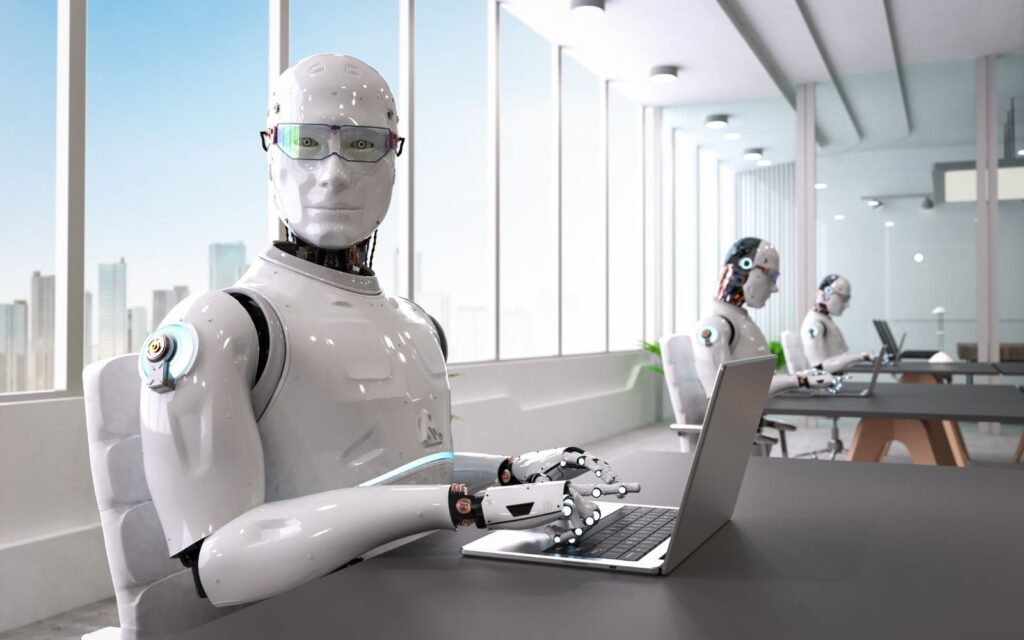Can AI Replace Human Intelligence?
Artificial intelligence (AI) has become a transformative force, revolutionizing industries and reshaping how we interact with technology. From self-driving cars to virtual assistants, AI continues to make remarkable strides. However, this rapid progress raises a critical question: Can AI replace human intelligence?
To explore this, let’s delve into the distinctions between human intelligence and AI, their unique strengths, and the challenges AI faces in mimicking the human mind.
Understanding Human Intelligence vs. Artificial Intelligence
Human Intelligence refers to the innate ability to think, reason, learn from experience, and adapt to new situations. It encompasses emotional intelligence, creativity, critical thinking, and social interaction, which are deeply rooted in consciousness and intuition.
Artificial Intelligence, on the other hand, involves machines programmed to simulate human-like tasks. AI operates on algorithms and data, excelling at processing information and recognizing patterns but lacking awareness and emotional depth.
Strengths of AI
- Speed and Efficiency: AI can analyze vast amounts of data in seconds, far outpacing human capability.
- Automation of Repetitive Tasks: From manufacturing to customer service, AI handles mundane tasks efficiently, freeing up human resources.
- Precision and Accuracy: In fields like healthcare and finance, AI minimizes errors, offering reliable solutions.
- Continuous Learning: Through machine learning, AI evolves by processing new data, improving its performance over time.
The Limitations of AI
While AI is powerful, it has inherent limitations that differentiate it from human intelligence:
- Lack of Emotional Understanding: AI cannot experience or comprehend human emotions, making it inadequate for roles requiring empathy and emotional intelligence.
- Dependence on Data: AI’s performance is only as good as the data it’s trained on, leading to biases or inaccuracies if the input data is flawed.
- Creativity Deficit: AI can generate art, music, or text based on patterns, but it lacks the imaginative spark that drives true creativity.
- Ethical and Moral Judgment: Machines cannot make moral or ethical decisions, as these require subjective reasoning and societal context.
Why AI Cannot Fully Replace Human Intelligence
Despite its advancements, AI is unlikely to replace human intelligence entirely for several reasons:
- Human Creativity and Innovation: The ability to think outside the box, innovate, and adapt to unforeseen circumstances remains uniquely human.
- Consciousness and Self-Awareness: AI lacks the self-awareness and consciousness required to understand itself and the world on a deeper level.
- Social and Cultural Nuances: Interpersonal skills, cultural sensitivity, and social interaction are beyond AI’s grasp.
- Ethical Governance: Complex ethical dilemmas often require human reasoning that AI cannot replicate.
AI as a Complement to Human Intelligence
Instead of replacing humans, AI is better viewed as a powerful tool to complement human intelligence. By automating tasks, providing insights, and enhancing decision-making, AI enables humans to focus on what they do best: innovation, empathy, and leadership.
Conclusion
AI is undoubtedly a game-changer, transforming how we live and work. However, its limitations in understanding emotions, morality, and creativity highlight why it cannot fully replace human intelligence. The true potential lies in a collaborative future where AI augments human abilities, creating a synergy that drives progress across industries.
As we embrace AI, it’s essential to focus on ethical development and responsible integration, ensuring that technology serves humanity rather than replacing it.
